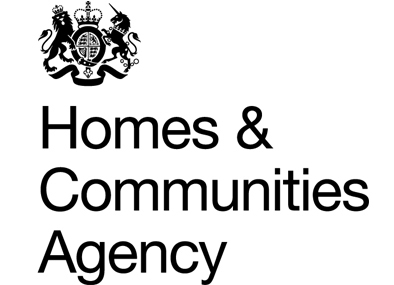HCA review: from assessing 'conflict of interest' to showing 'best value'
Housing delivery key driver for breaking up the HCA but local presence brought into question as organisation told to work on how it shows ‘best value’.
A government review of the Homes and Communities Agency (HCA) has recommended the separation of its regulatory and investments functions, resulting in the creation of a standalone social housing regulator.
In the review foreword, communities secretary Sajid Javid said the agency ‘must have a clear principal objective of delivering housing’. He said the review ‘signals significant change and a corresponding leadership challenge for the new chair and his team’. He added it also needs ‘to become more active in the land market, to enter and shape new markets through accelerated construction, and to drive delivery of new products such as shared ownership and starter homes’.
The creation of a standalone regulator is a ‘purely administrative change that will not affect the regulator’s powers or operations’, added housing minister Gavin Barwell.
The review found that the necessity of delivering at arm’s length from government ‘was clearest for the HCA’s regulatory function’. It had examined the potential conflict of interest created by the HCA in being a secured creditor of organisations which it regulates, following the evolution of HCA Investments.
It said the drawback of offering more autonomy ‘were clear’, and that ‘remaining in the HCA would not remove the risk of a conflict of interest, but, rather, reduce its likelihood of occurrence’.
The review had examined options for merging the regulatory function with another regulator or other body, but there was ‘a clear view that the character of the regulatory role did not lend itself to a merger with any other regulator’.
It also said merger ‘would have transition costs and would be more disruptive, given the complexities of bringing together organisations and the need to integrate distinct organisations in order to achieve operational savings’.
Some stakeholders pointed specifically to a weakening focus on the ‘communities’ aspect of its function over time.
The review said the HCA should review ‘which functions currently delivered in local operating areas can be delivered more efficiently and effectively as a central function’.
However, it also recommended that the HCA should develop - via its ongoing change programme and continuous improvement - a clearer focus on understanding and demonstrating best value, while the review ruled out merger with another regulatory body due to the ’ complexities of bringing together organisations’.
Conflict of interest
The review said that since the HCA began making recoverable investments, its governance arrangements and an operational ‘ethical wall’ have ensured that information is ‘not inappropriately exchanged between the regulator and the HCA Investment function which, in some cases, deals with registered providers as a creditor’.
Although some stakeholders supported the simplicity of a single agency, the review said it found ‘some concerns about the potential conflict of interest which has grown in significance since HCA-Investments was established in 2014’.
‘While there was no suggestion that any conflict has materialised, there has also been no significant test,’ it added.
‘A downturn in the housing market could provide that and the complexities of the HCA’s investment role and the regulated sector itself are also likely to increase over time.’
Ruling out merger
There was a ‘clear concern’ that incorporating the regulatory function into another organisation could result in a loss of focus on the sector or a change to the regulatory approach, the review said.
It added: ‘The current focus on economic regulation provides assurance in a sector with around £67bn of private debt and underpins the preferential lending rates available to registered providers which are crucial in supporting housing supply.’
There were interviews with comparator bodies, such as Charity Commission, Monitor and Housing Ombudsman, but they found ‘a clear lack of synergies with the regulator’s functions’. It said merging with the Housing Ombudsman, which is entirely focused on consumer regulation rather than economic regulation, would involve the creation of a non-sector specific regulatory body.
It is also recommended that it should review its local presence and what can be better delivered centrally. It will ‘keep its operating model at local level under review, particularly given ongoing devolution’.
Conclusions
- a clear and continuing need for a delivery body carrying out the functions of the Homes and Communities Agency, operating as part of a better integrated group of organisations affiliated to the Department for Communities and Local Government.
- the purpose of the HCA as an agency with a principal objective on housing delivery and subordinate objectives including regeneration, growth and devolution will be more clearly formalised.
- a new statement of purpose will describe the HCA’s role, beyond direct delivery of its own programme targets
- to reflect a principal focus on housing, the HCA should consider adopting a new operating name that better reflects its current role
- the HCA needs to continue the work it has started to build a more unified culture which recognises differences between functions but provides a sense of common identity and purpose.
- the new, clearer description of the HCA’s future purpose and strategy should be communicated by the agency’s leadership to its staff and partners.
- the HCA requires a more unified and integrated executive leadership and a stronger strategic function at the centre of the Agency.
- reflecting the change of circumstances since 2014 when HCA-Investments was established, the HCA’s regulatory function will be separated into a new non-departmental public body. It will retain close working relationships with the HCA and DCLG and, in line with a ‘DCLG Group’ approach, share corporate services. This change in organisational structure and governance will not impact on operations or the regulatory approach currently in place.
- until the formal separation of the regulatory function, the HCA and DCLG should actively explore options for increasing the operational independence of the Executive Director of Regulation. The HCA should ensure in the interim that protocols implementing its 16 ‘ethical wall’ arrangements between the Agency’s investment and regulatory arms continue to have sufficient formality and profile.
- The case for the separation of HCA-Investments from the rest of the Agency and the possibility of establishing a more commercial entity were examined. We conclude that the HCA should remain an executive non-departmental public body, retaining all of its existing functions except regulation. This should be reviewed periodically, particularly following any significant change in policy direction and the role of the agency or its individual functions.
- governance structures across DCLG and the HCA will be reviewed to deliver a revised DCLG Group governance model for 20 decision-making. DCLG and the HCA will agree an approach to standardise the documentation required for project decision-taking across both organisations. DCLG and the HCA will work with the Treasury to review HCA project delegations and whether current arrangements strike the correct balance.
- The HCA needs to work more effectively with the Cabinet Office Government Property Unit on the disposal of public sector land. Jointly agreed targets, responsibilities and priorities could aid this.
- The HCA’s mission for this Parliament requires it to transform its capability to be more active in the land market, deliver Accelerated Construction and to achieve targets on Shared Ownership and Starter Homes. The HCA should make a detailed assessment of its future skills needs as a matter of priority, particularly focussing on what is required to deliver new programmes.
- The HCA should consider its approach to skills and talent management with a view to making the HCA a more specialist, professional organisation.
- The HCA should develop (via its ongoing change programme and continuous improvement) a clearer focus on understanding and demonstrating best value.
- While it is indisputable that the HCA requires a local presence to deliver its objectives, it should overhaul its operating model to improve efficiency and effectiveness for the future.
It should review the nature and size of its local presence in each area to reflect the level of demand and opportunity and identify which functions currently delivered in local operating areas can be delivered more efficiently and effectively as a central function.
RELATED




